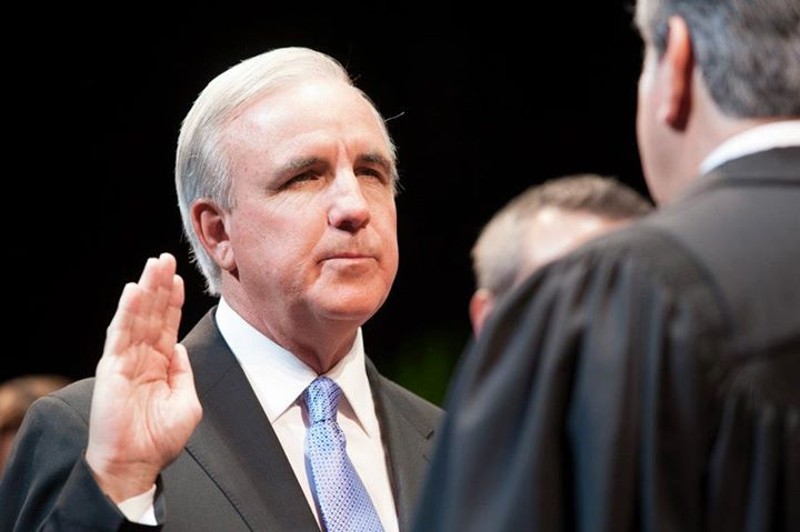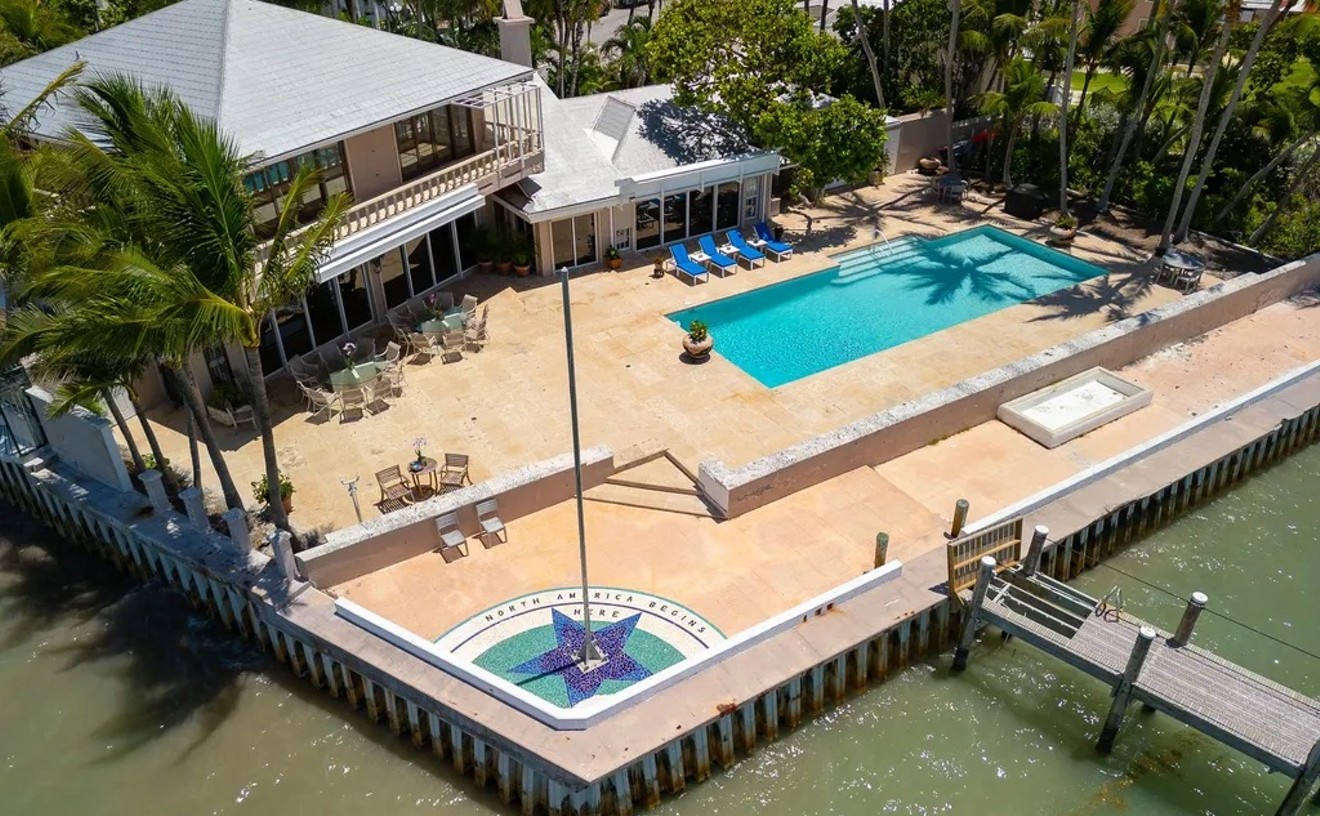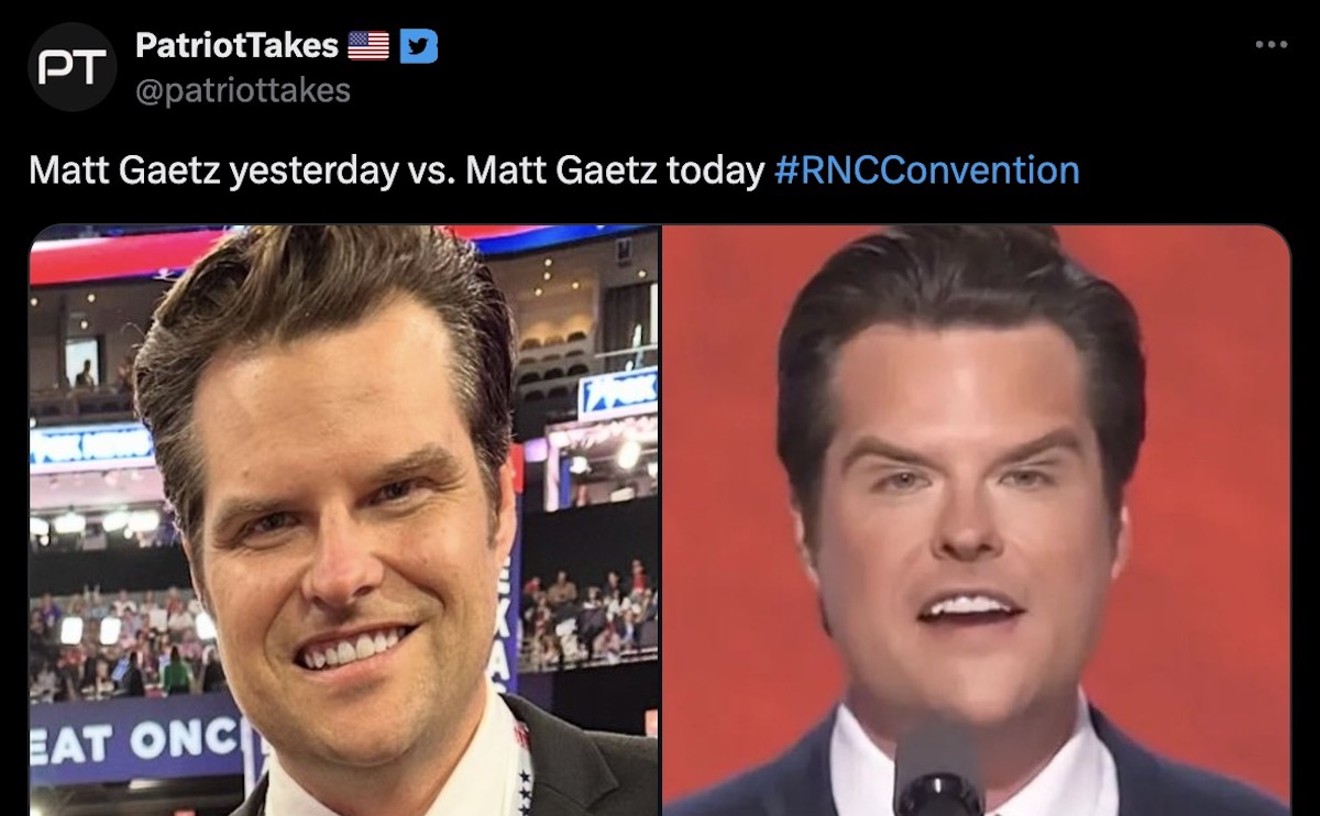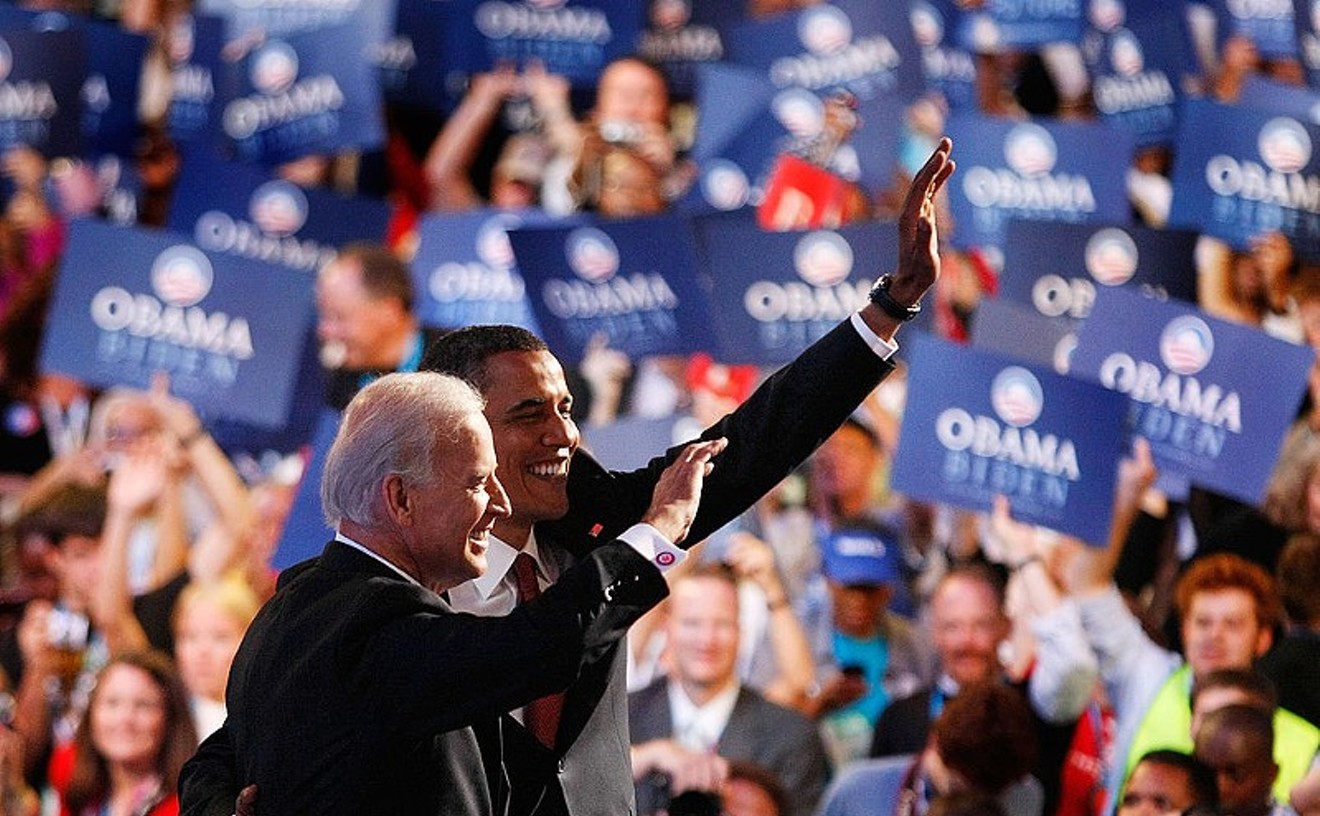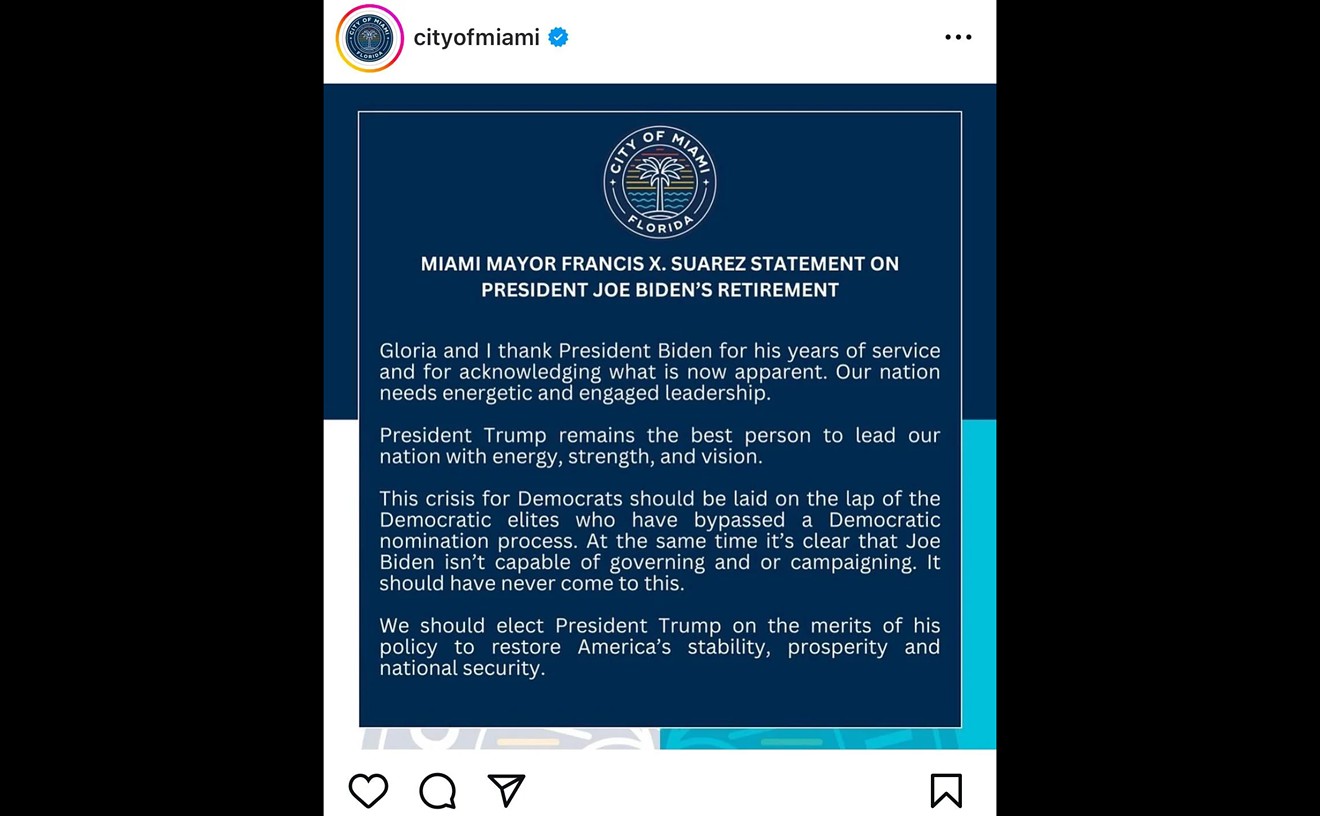Gimenez did not take part in the discussion. Instead, he spent the morning on Spanish-language radio, denying that Miami Beach's resolution had been approved.
Miami-Dade's embattled mayor has doubled down on his January decision to comply with President Donald Trump's hollow "ban" on "sanctuary" cities. Gimenez has responded to criticism by figuratively spraying himself deeper shades of orange. In Trumpian fashion, he even alleged (without evidence) that a local labor organizer and one of his most prominent critics had started a rumor about immigrant checkpoints. Just before 9 this morning, Gimenez spoke live on Spanish-language station Radio Caracol 1260 AM and repeatedly denied Miami Beach had passed a resolution criticizing his decision-making.
"It was proposed, but it did not pass," Gimenez said repeatedly in Spanish after a caller asked him what he thought of Miami Beach's resolution.
But that's simply untrue: The Beach unanimously passed the resolution via
Thankfully, there's
Gimenez Takes a Page from the Trump Bullying Playbook from Elbert Garcia on Vimeo.
The mayor's spokesperson, Michael A. Hernandez, did not immediately respond to an email and a text message from New Times seeking comment. It's unclear whether Gimenez was simply misinformed or straight-up lied to Radio Caracol's listeners."We did pass a resolution," Miami Beach Commissioner Kristen Rosen Gonzalez wrote on Facebook today, in response to Gimenez's radio appearance.
¡Gracias al alcalde @MayorGimenez por acompañarnos hoy en el estudio! #MayorGimenez #MiamiDade pic.twitter.com/PR4xOtHUO9
— Caracol 1260 (@Caracol1260) February 10, 2017
One day after Trump passed an executive order threatening to withhold federal funds from "sanctuary" communities, Gimenez signed an order demanding Miami-Dade jails work with federal immigration officials. Then the Miami-Dade County Commission scheduled a special meeting February 17 to discuss overturning Gimenez's order, which has sparked multiple protests in typically activism-averse Miami-Dade. Gimenez has been repeatedly accused of running from his constituents in the weeks since: Earlier this week, multiple people told New Times the mayor was ducking citizens' phone calls about the measure. The mayor's administration says the issue was a departmental mixup.
In the leadup to the County Commission meeting, Miami Beach passed a resolution this week imploring its commissioners to reverse Gimenez's order.
On January 26, "Miami-Dade County Mayor Carlos Gimenez issued a Memorandum directing the Miami-Dade Corrections and Rehabilitation Director to honor all immigration detainer requests received from the Department of Homeland Security; and, in a Statement issued on January 27, 2017, Mayor Gimenez re-affirmed that Miami-Dade County has never been a sanctuary community," Miami Beach's resolution reads.
It adds that "the Mayor and City Commission of the City of Miami Beach encourage Mayor Gimenez to re-evaluate the Memorandum he issued on January 26, 2017, and encourage the Miami-Dade County Board of County Commissioners to seek input from community stakeholders and County residents at its February 17, 2017 meeting with regard to the adverse implications, and possible unintended consequences, that the Mayor's January 26, 2017 Memorandum could have in Miami-Dade County-particularly with regard to the fostering of a negative perception among the County's diverse residents and visitors."
Civil rights organizations have lambasted Gimenez's decision. Though Gimenez says he's simply acting to save city funds, most independent experts say Trump can't revoke most of the federal money flowing to Miami without the help of Congress. Earlier this week, a group of 48 civil rights groups and experts, including the American Civil Liberties Union and Southern Poverty Law Center, warned that complying with Trump could end up costing the city more money than it saves, because detaining suspects for Immigration and Customs Enforcement is expensive — and also opens Miami-Dade to scores of wrongful-incarceration lawsuits.Are Broward Co & #MiamiBeach sanctuary communities? @MayorLevine, Broward Mayor Barbara Sharief (@bestmom39) join #FloridaRoundup at 12pET
— WLRN Public Media (@WLRN) February 10, 2017
Miami Beach's pro-immigrant resolution mentions yet another reason Gimenez ought to reconsider the plan: The sanctuary-city ban could have a deleterious effect on tourism —
Regardless, Gimenez will have a difficult time avoiding Miami Beach's resolution in the next week: Beach commissioners say they plan to send a copy of the legislation to every county commissioner.
Here's Miami Beach's full resolution:

